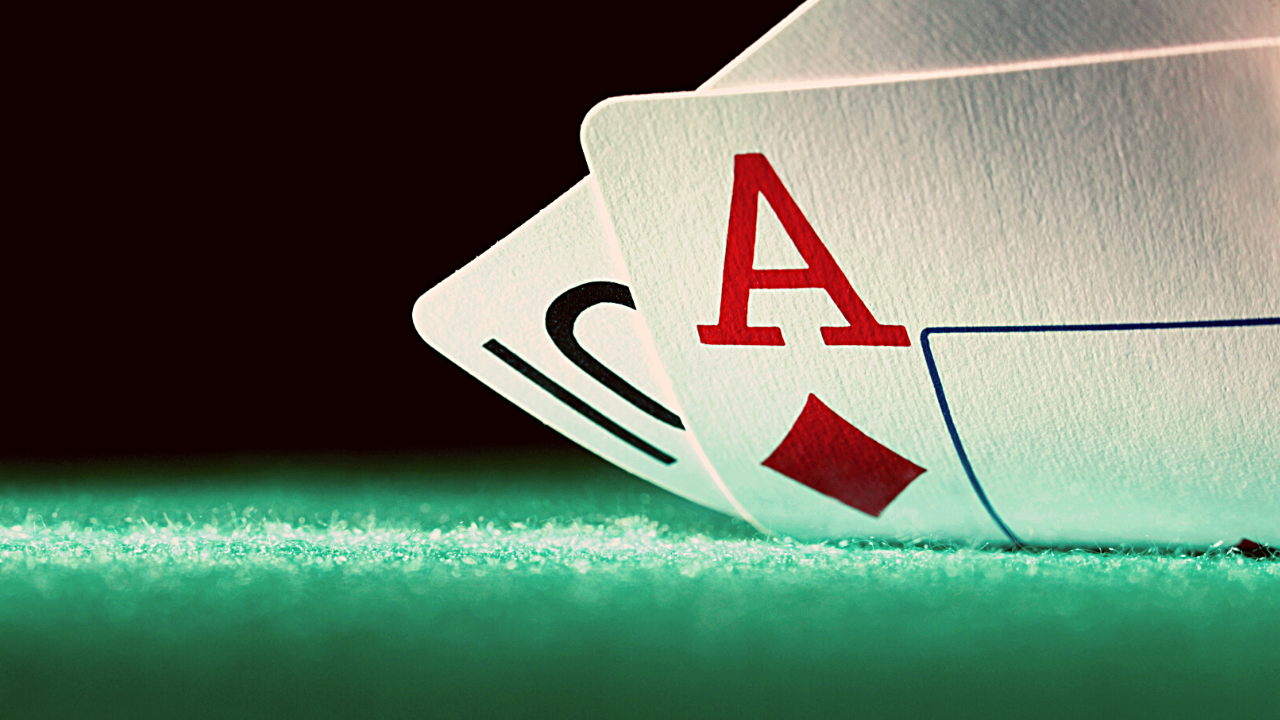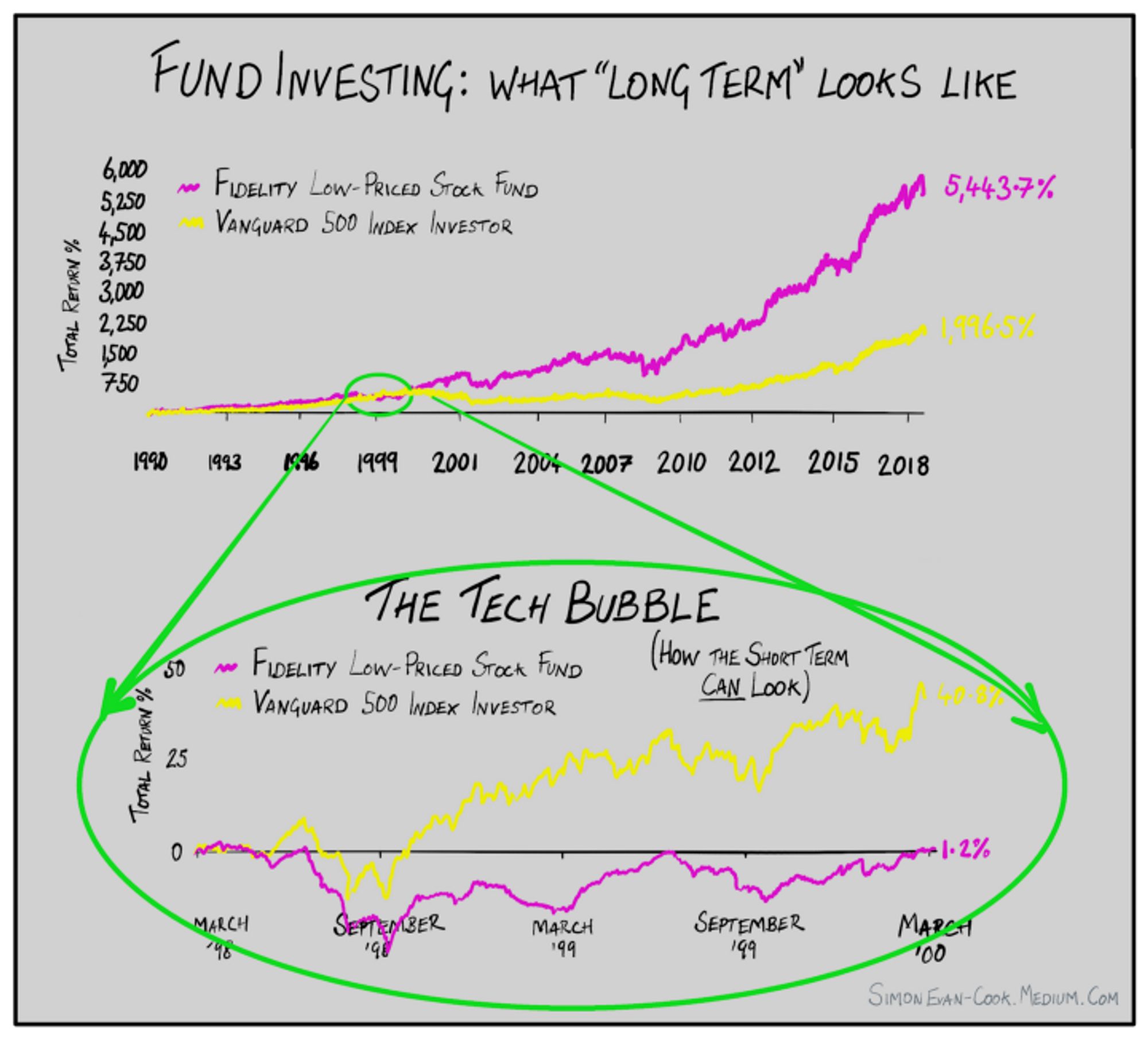You lose $8,000 in one night playing Blackjack. Are you going to try and win it all back again tomorrow?
You do come back and you lose even more. This time it's $10,000. Are you finally done, or will you come back for more?
What if you lose a total of $100,000 over two months? Now will you stop?
If you’re KC you go back to the bank and pull out another $200,000. Then proceed to lose another $130,000 at the casinos in Connecticut and in Atlantic City.
But KC doesn’t stop. Because KC is not gambling. KC is a professional blackjack player.
The documentary Inside the Edge follows KC as he travels around the U.S. trying to win as much money playing Blackjack before he quits the grind for good.
Poker is often the go-to card game used as an analogy for investing. However, after watching KC operate, I think professional blackjack provides a more accurate metaphor. This is because:
- Professional Blackjack relies on systems.
- You have to keep your emotions in check and make rational decisions.
- And how much you win depends on maximizing the size of your bets when the odds are in your favor.
Systems
"...when luck has little influence, a good process will always have a good outcome. When a measure of luck is involved, a good process will have a good outcome but only over time."
From The Success Equation by Michael Mauboussin
Card counting requires great skill, but it doesn’t guarantee you’ll win.
Winning at blackjack requires building a robust playing system that gives you a slight edge over the house. Then exploiting that edge over a long period of time.
“Blackjack players understand the concept of risk. They understand the fact that there are going to be fluctuations, ups and downs, but they want to control the risks.”
Arnold Snyder, Editor of Blackjack Forum
At the start of the trip, KC is winning a lot of money and then his incredible streak of bad luck happens. KC goes back to his RV to run simulations of his gameplay. The simulations confirm that KC’s system did not fail him, it was bad luck.
Investing requires great skill and the development of robust systems like professional blackjack. And like blackjack, luck plays an important role in the short term. There will be periods when you do everything right according to your system but you still end up with a negative outcome.
Joel Tillinghast managed the Fidelity Low Priced Stock Fund from its launch until he retired earlier this year. Joel relied heavily on investment systems and the fund outperformed the S&P 500 during his tenure. But there were long periods where his fund underperformed the market. The one thing Joel did not do during these periods of poor performance was abandon his systems.
A system designed to take advantage of a slight edge over a long period of time needs just that, time.
Investing is about exploiting a slight edge over a very long-time. There will be periods when you’ve done everything right according to your system but still end up with undesirable outcomes.
It’s during these periods that it is enticing to abandon your systems and take excess risk in the hopes of getting even with the market. But you’re sacrificing your long-term returns for short-term performance.
It’s Ok to review your systems to make sure they're still the right ones. KC double-checks his playing system. But once he confirms that it is still the optimal system, he doesn’t abandon it. He sticks with it. He knows that his bad luck will change, and his system will win out in the long term if he can manage his bankroll and keep playing.
It’s the same thing with investing systems.
What is the best system?
The best system is the one that keeps you focused on long-term compounding.
It stops you from overtrading which leads to underperformance.
It’s a system that focuses on the factors or types of companies that tend to outperform the market while avoiding those that don’t.
It creates rules for cutting losing positions quickly to avoid value traps and growth traps.
It prevents your behavioral biases from causing you to make the wrong emotional decision.
It helps you stay invested in your winners longer.
It also helps you trim your winners when they’ve become too big.
Most importantly, it is a system that fits you.
Reduce Emotions
“By far the most important characteristic of someone who is going to be a success at this is emotional control. You can’t be subject to emotional involvement that will take your losses and turn them into your downfall.”
KC’s Dad
In my early 20s, my roommates and I went to Las Vegas for New Year's. One roommate was a degenerate gambler. Within the first 30 minutes of hitting the casino floor, he lost $3,000. He wasn't playing the high-stakes tables. He was playing the $5 tables.
He took each loss personally.
He would get verbally mad at the dealer who had no control over what cards they dealt.
Then he would double or triple his bets to win back the previous loss as quickly as possible. Any bad streak in cards he amplified with poor bets made in anger.
Now compare my roommate's actions to KC’s during his streak of bad luck and losing over $200,000.
“you get your bets in and then the cards fall as they may. And you just have to hope you can ride out the storm.”
I group behavioral biases and emotions together. A decision influenced by our behavioral bias may not feel like an emotional decision, but it is. We're making an irrational decision based on gut feelings and simple heuristics.
The most common “emotional” decision happens when selling a position.
If it’s a winner and it keeps going up after you sell, you’ll hate yourself for missing out on the extra gains.
If it’s a loser and it goes up after you sell, you’ll hate yourself for not being patient.
If you don’t sell it and then the position loses more, you’ll hate yourself even more.
We must fall back on our systems to remove the emotional investment decisions.
This could be in the form of automatic sales if a position drops too much after investment. It could be price guardrails that automatically trim overweight positions and add to underweight positions. The goal is to reduce how much effort we have to put into a buy or sell decision. The less we have to think about, the less chance we’ll make an emotional decision.
Emotional play in blackjack can bankrupt a player. You’re unlikely to go bankrupt with emotional investing. But it can lead to chronic underperformance. And if you’re investing for retirement, this can cause you to outlive your money. A major personal catastrophe.
Portfolio Management
Professional blackjack players are great portfolio managers.
They make small bets and take small losses when the count isn’t favorable. And they make maximum bets and play as many hands as possible when the count is heavily in their favor.
The biggest deterrent to maximizing long-term wealth is big losses. Like professional blackjack players, we want to minimize our losses and press our winners.
In the book The Art of Execution, Lee Freeman-Shor cites a study that shows taking frequent small losses leads to higher returns.
A study by Professor Frazzini supports the Assassins’ approach too: it shows that the highest investment returns were achieved by those investors that had the highest rate of selling out of losing positions. Those that realised [sic] the least amount of losing positions experienced the lowest returns.
Going back to building systems, this can mean starting with small starter positions with specific kill criteria to cut any loss early.
Not just a review trigger but an actual sell criterion. A review trigger opens us up to our behavioral biases which can cause us to hold onto a losing position creating a bigger loss.
The system also needs a trigger to add more money to a winning position. We want to maximize our “bet” size in our winners to generate as much positive return as possible.
The famous poker quote is “You play the players, not the cards.” This is still a good investing metaphor for understanding market sentiment and short-term price action.
But professional blackjack provides a much better example for the process of long-term investing.
How we can build systems to help us exploit small edges over the long term, reduce emotional decisions, and maximize returns when the odds are in our favor?





